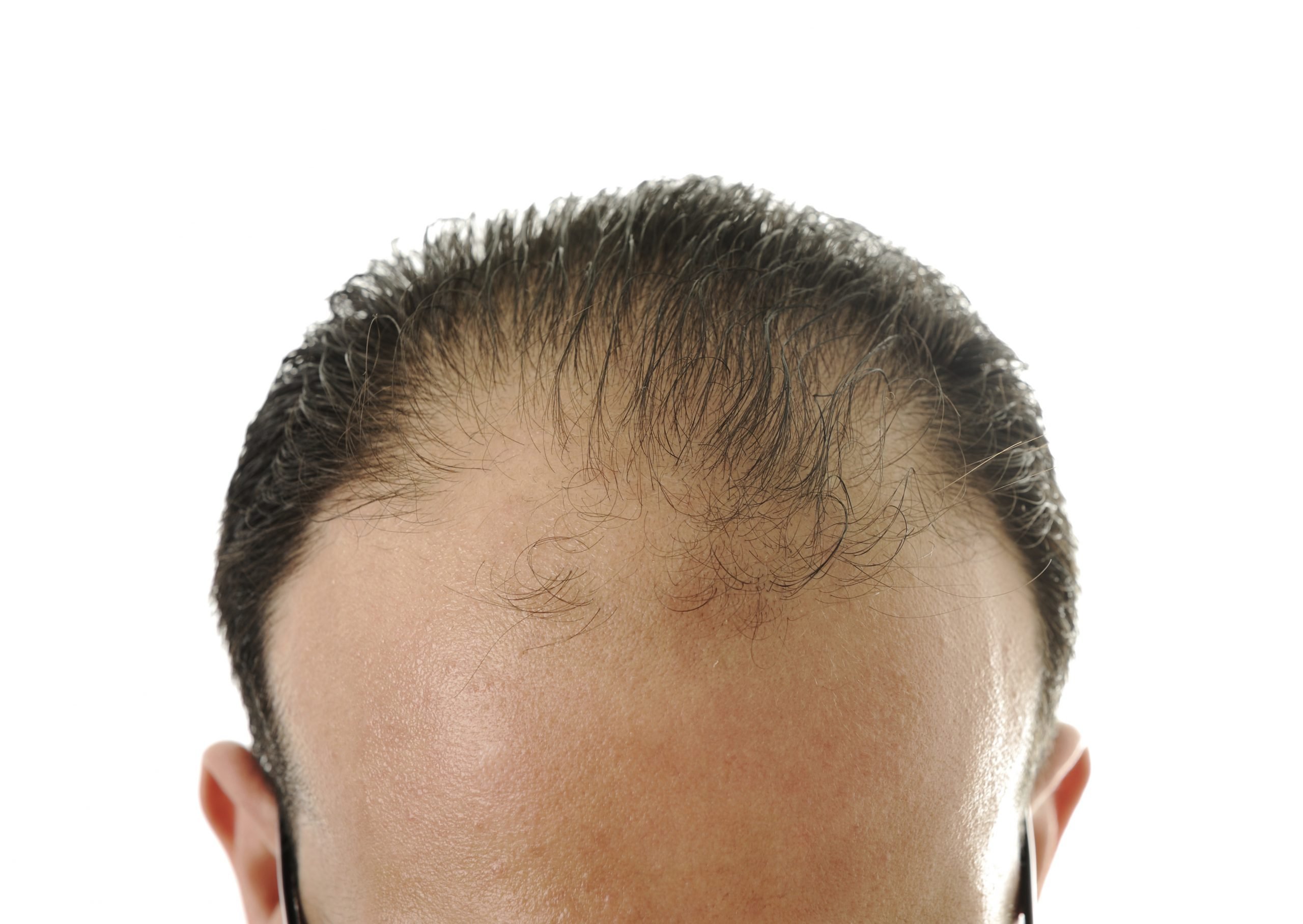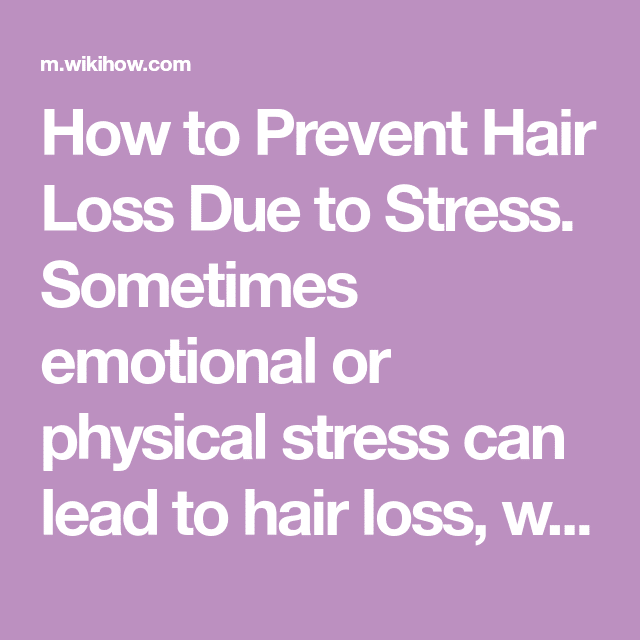Hair Loss From Thyroid Problems
Either an underactive thyroid, a medical condition called hypothyroidism, or an overactive thyroid, or hyperthyroidism, can result in hair loss because each condition causes a hormonal imbalance. Hormones help to regulate nearly every function in the body, including hair growth. Getting the right treatment to control either of these thyroid conditions will get hormones under control, stop hair loss, and allow your hair to starting grow back.
What Are The Symptoms Of Abnormal Hair Loss
Hair loss may affect just your scalp, hair on another part of your body or all hair on your body. You may notice increased hair shedding that occurs suddenly, short or broken hair, or patchy hair loss, depending on the cause.
Round ring-like patches either on your scalp or elsewhere may indicate ringworm as the cause. You would be wise to check your cat or dog for the source your vet can easily diagnose the fungus causing ringworm.
If your hair loss is caused by a medical condition affecting other parts of your body, you may also notice other symptoms. These are listed below.
|
See your doctor if you experience hair loss at the same time as any of the following symptoms: |
|
Skin Conditions Of The Scalp
An unhealthy scalp can cause inflammation that makes it difficult for hair to grow. Skin conditions that lead to hair loss include seborrheic dermatitis , psoriasis, and fungal infections such as ringworm.
The symptoms: Seborrheic dermatitis causes the scalp to shed its skin, so you’ll notice greasy, yellowish scales on your shoulders or in your hair. It may be the result of yeast called Malassezia, hormonal changes, or excess oil in the skin. Psoriasis, an autoimmune condition that causes excessive skin cell turnover, produces a very thick white scale on the scalp that can bleed if pulled off. With ringworm, a fungus you contract by touching an infected person or animal, you’ll notice red patches on your scalp, which may be diffuse, Jakubowicz says.
The tests: A physical exam of the scalp will help determine which condition you have. A fungal culture and possibly a biopsy of the scalp may pinpoint ringworm.
What you can do: Each condition usually requires a prescription: a medicated shampoo for seborrheic dermatitis, medications or light therapy for psoriasis, and oral antifungals for ringworm.
Alopecia Areata
Alopecia areata is an autoimmune disorder in which the immune system attacks hair follicles. It affects about 4.7 million people in the United States and occurs equally in men and women. The cause is unknown, but it may be triggered by stress or illness.
***More from Prevention:
Also Check: Does Genvoya Cause Hair Loss
Hypothyroidism And Hair Loss
Hypothyroidism is a condition that occurs when the thyroid gland does not produce an adequate amount of important hormones that the body needs to function properly. As a result, many patients experience hair loss in addition to other serious side effects. At TRUE & DORIN Medical Group, we offer patients suffering from hypothyroidism and hair loss several options to restore their confidence and appearance. Drs. Robert True and Robert Dorin are compassionate leaders in hair restoration who can help find a solution that works for you. During a consultation at our practice serving Manhattan, NYC, and communities throughout greater NYC, they can assess your health, medical history, and personal goals in order to recommend an effective hair restoration approach.
Anaemia And Hair Loss

Occasionally, hair loss can relate to iron deficiency anaemia. The condition is caused when you arent taking in enough daily iron. The reason it occurs is thought to be because the hair cells are sensitive to a decreasing amount of iron in the body. This means they might not produce new cells as effectively as usual.
Alongside hair loss, other symptoms which could point to anaemia include shortness of breath, fatigue, brittle nails, fast heartbeat, and pale skin.
Read Also: How To Hide Hair Loss Female
How Will A Healthcare Provider Diagnose Hair Loss In Women What Tests Are Done
The tests performed to diagnose hair loss in women can be simple or complicated:
- Gently pulling on your hair to see how many hairs come out.
- Blood tests. These check for vitamin and mineral levels and hormone levels .
- Scalp examination under a microscope and trichoscopy.
- Scalp biopsy to remove and examine a very small piece of scalp skin.
Changes In Birth Control
Going off hormonal birth control or changing to a different type of hormonal contraception can also cause hormone-induced shedding. “Whether you’re just starting it, discontinuing it, or changing brands, your body can react by causing the hair to go into an increased shedding mode,” Dr. Fusco says.
This is another form of telogen effluvium, which means that its usually temporary. You can rely on volumizing products and styling tricks while you wait for your hair to regain its fullness.
You May Like: What To Do For Cat Hair Loss
How Hair Loss Happens
Although elevated testosterone causes baldness, not everyone with high levels of testosterone will lose hair, said George Cotsarelis, M.D., the Milton Bixler Hartzell Professor of Dermatology and chairman of the dermatology department at the University of Pennsylvania.
Most men who go bald also have acquired a genetic predisposition to baldnessbut not like the old wives tale that says if your maternal grandfather is bald, youll go bald, too. In fact, baldness can be passed down from either parent, the dermatologist explained.
Studies have shown that by the age of 50, about half of all men will have some degree of male pattern baldness, Cotsarelis said.
Losing hair usually happens over time. The hair follicle becomes smaller and smaller in the genetically determined area. This can start in the early teens and progress over decades, or begin in middle age.
Normally, hair grows and falls out. The follicle rests, then makes a new strand. However, when the follicle shrinks, the hair becomes thinner and shorter, often becoming almost microscopic over time. If you look closely at a balding head, you may see a smattering of short, thin hairs.
Intense Emotional Or Physical Stress
When you’re experiencing something stressful or traumaticnot your average day-to-day stress, but something big and life-altering like a divorce, a death in the family, a significant job change, or a big moveyou may experience a temporary halt in hair growth as your body puts its resources toward getting you through said big event.
“Hairs dont all grow at the same rate,” Dr. Schlosser explains. “Some are growing, some are resting, and some are actively being shed. When you have these conditions, your body halts hair growth, and then things get restarted and all these hairs that have been halted start to get pushed out at the same time.” The same thing can happen with physical stress and trauma, like having a big operation, being hospitalized, or even losing a significant amount of weight very quickly.
Usually this type of hair shedding is temporary. But if it bothers you, check in with a dermatologist to learn more about styling changes and products you can use to make your hair look and feel fuller.
You May Like: Can You Fix Thinning Hair Male
Types Of Alopecia Areata
There are three main types of alopecia areata:
- Patchy alopecia areata. In this type, which is the most common, hair loss happens in one or more coin-sized patches on the scalp or other parts of the body.
- Alopecia totalis. People with this type lose all or nearly all of the hair on their scalp.
- Alopecia universalis. In this type, which is rare, there is a complete or nearly complete loss of hair on the scalp, face, and rest of the body.
Hair Cycle Of Growth And Rest
Like your skin and nails, your hair goes through a finely tuned cycle of growth and rest. There are 3 phases in a hair cycle:
- In the first stage, your scalp hair is continually growing. During this anagen phase, your hair grows about 12cm per month. About 90% of your hair is in this stage at any one time. It lasts between 25 years.
- The second stage, called the catagen phase, is when growth stops. About 13% of your scalp hair is in this phase at any one time. It lasts for 23 weeks.
- The third stage, the telogen phase, is a resting phase that lasts between 14 months. About 10% of your scalp hair is in this phase at any one time.
Don’t Miss: What Is The Most Effective Hair Loss Treatment
Dandruff Or Scalp Psoriasis
When the skin on the scalp is inflamed and itchy, its obviously tempting to scratch it. But that may cause your hair to shed more than usual.
Dandruff is the most easily treated cause of hair loss, Dr. Fusco says, because you can treat it with over-the-counter products, like a shampoo containing zinc pyrithione or exfoliating ingredients such as the classic Head & Shoulders Classic or Oribe Serene Scalp Anti-Dandruff Shampoo . “Consistency is the trick,” Dr. Fusco says, so it’s important to find a shampoo and conditioner you like enough to use regularly.
But other conditions can also cause itchiness and scalp flaking, including seborrheic dermatitis and psoriasis . Treating these issues may take more time and effort than dandruff, so its important to check in with a dermatologist if you think you may be dealing with one of these conditions.
Heart And Blood Vessel Disorders

Blood clots sometimes form inside one of the upper chambers of hamsters hearts. This condition is called atrial thrombosis. The blockages are often found in the left side of the heart. Atrial thrombosis occurs in up to 70% of older Syrian hamsters.
Atrial thrombosis is usually the result of congestive heart failure, a condition in which the heart muscle weakens and cannot pump blood efficiently throughout the body . Both atrial thrombosis and congestive heart failure happen more frequently in older hamsters and are often connected with amyloidosis . Signs include rapid breathing, an irregular heartbeat, and a blue tint to the skin or gums. There is no effective treatment, but your veterinarian may be able to suggest ways of managing this condition for a time. Syrian hamsters with untreated congestive heart failure typically die within a week after signs begin.
You May Like: Does Revlimid Cause Hair Loss
Read Also: What Shampoo Ingredients Cause Hair Loss
What Is The Relationship Between Hair Loss In Women And Menopause
During menopause, you might see one of two things happen with your hair. You might start growing hair where you didnt before. Or, you might see the hair you have start to thin. One cause may be changing levels of hormones during menopause. Estrogen and progesterone levels fall, meaning that the effects of the androgens, male hormones, are increased.
During and after menopause, hair might become finer because hair follicles shrink. Hair grows more slowly and falls out more easily in these cases.
Your healthcare provider will do a thorough examination and take a detailed history to help you deal with changes in hair growth. You may be directed to have your iron levels or thyroid hormone levels tested. Your medications might be changed if what you take is found to affect hair loss or growth.
You’re Losing Hair Not Only From Your Head
âLoss of facial or body hair in addition to scalp hair may indicate your hair loss may be due to an inflammatory or autoimmune condition,â explains dermatologist Susan Bard, MD. So if your eyebrows are thinning, you notice eyelashes falling out, or your arms are losing hair, something more could be going on.
In the case of the autoimmune disease alopecia areata, your immune system attacks the hair follicles anywhere on the body, leading to hair loss. Lupus and thyroid disorders can also lead to hair loss not only from your head but also on the face and body.
You May Like: How To Avoid Hair Loss After Birth
What Questions Might Your Healthcare Provider Ask To Diagnose And Categorize Your Hair Loss
Your healthcare provider might ask about your habits:
- What kinds of hair products do you use?
- What kinds of hair styles do you wear?
- What types of food do you eat ?
- Do you have a habit of pulling your hair out ?
They might ask about your history:
- Has anyone in your immediate family experienced hair loss?
- Is there anything stressful going on in your life?
- What medications and supplements do you take every day?
- Has hair loss ever happened to you before?
- What foods are in your diet?
And, they might ask about your observations:
- How long have you been losing hair?
- Have you been shedding more?
- Have you noticed hair loss in places other than your scalp, like your eyebrows? Leg and arm hair?
- Does anything worsen your hair loss?
- Does anything improve your hair loss?
- Have you noticed hair loss occasionally or has it been going on continuously?
- Have you noticed if your hair growth has changed?
- Has your hair been breaking more often?
Physical Trauma: A Shock To Hair Follicles
When your body is under serious physical stress, the natural cycle of hair growth and resting can be disrupted, resulting in hair loss, often in the form of thinning hair strands may come out in clumps. Any shock to the system, such as being in a severe accident, undergoing surgery, experiencing burns, or becoming very ill, can also shock the hair follicles, resulting in up to 75 percent of your hair falling out, sometimes months after the fact.
Also Check: Does Hairfinity Cause Hair Loss
Hair Loss Why It Can Be A Sign Of Something More Serious
Hair loss is not just a cosmetic problem. It can be a sign of something much more serious. When hair loss occurs it is often a sign that your body is experiencing a health problem. This could be due to a thyroid issue, anemia, or even cancer. This is why it is so important to find out if you have any symptoms of a health condition. If you do then you should see a doctor as soon as possible to get it treated and prevent it from becoming worse.
The first thing to look for when you experience hair loss is a sudden change in your diet. If you suddenly start eating less healthy foods and consuming more processed foods then this is usually a good indicator that there is something wrong with your body. The reason is because food that is processed has been stripped of many nutrients. In addition to this it has also been stripped of its natural taste.
When you are dealing with a health issue such as anemia, cancer, or thyroid problems then you will often experience weight loss. This is because the treatment for these types of conditions will require you to take vitamins and other supplements. This will help your body heal and you will begin to put back the weight that you lost.
If you experience hair loss then you should make sure that you visit your doctor to get it checked out. You need to make sure that you are dealing with a health condition that is not life threatening. In addition to this you need to make sure that you treat the underlying cause of the problem.
Polycystic Ovary Syndrome And Hair Loss
Polycystic Ovary Syndrome is a hormonal disorder that affects women, resulting in increased androgen production. It mostly causes hair to grow in places it shouldnt such as on the face, chest, and abdomen. It causes a number of symptoms including hair loss, irregular periods, weight gain, oily skin, and difficulty getting pregnant.
Also Check: Does Ogx Cause Hair Loss
You’re Losing Eyelash Or Eyebrow Hair
lina smith/Flickr
“If you notice hair loss on other parts of the body , something more is going on,” Dr. Shapiro said.
If you lose hair from your eyebrows or eyelashes, it could mean you have a serious form of the autoimmune condition alopecia. Unlike androgenetic alopecia, other types of the condition like alopecia areata or alopecia universalis can cause hair loss in greater quantities and in areas of the body besides the scalp, according to Healthline.
That’s because the body mistakes the hair follicles as dangerous and attacks them, causing the hair to fall out of the follicles on various parts of the body.
Other autoimmune conditions that could cause non-scalp hair loss include thyroid disease and lupus. Doctors can use blood work to determine the exact cause of hair loss.
Whats Hair Loss In Women

Hair loss in women is just that when a woman experiences unexpected, heavy loss of hair. Generally, humans shed between 50 and 100 single hairs per day. Hair shedding is part of a natural balance some hairs fall out while others grow in. When the balance is interrupted when hair falls out and less hair grows in hair loss happens. Hair loss is different than hair shedding. The medical term for hair loss is alopecia.
Hair grows on almost all of your skin surfaces not the palms of your hands, soles of your feet, lips or eyelids. Light, fine, short hair is called vellus hair. Terminal/androgenic hair is thicker, darker and longer.
Also Check: Can Keto Diet Cause Hair Loss